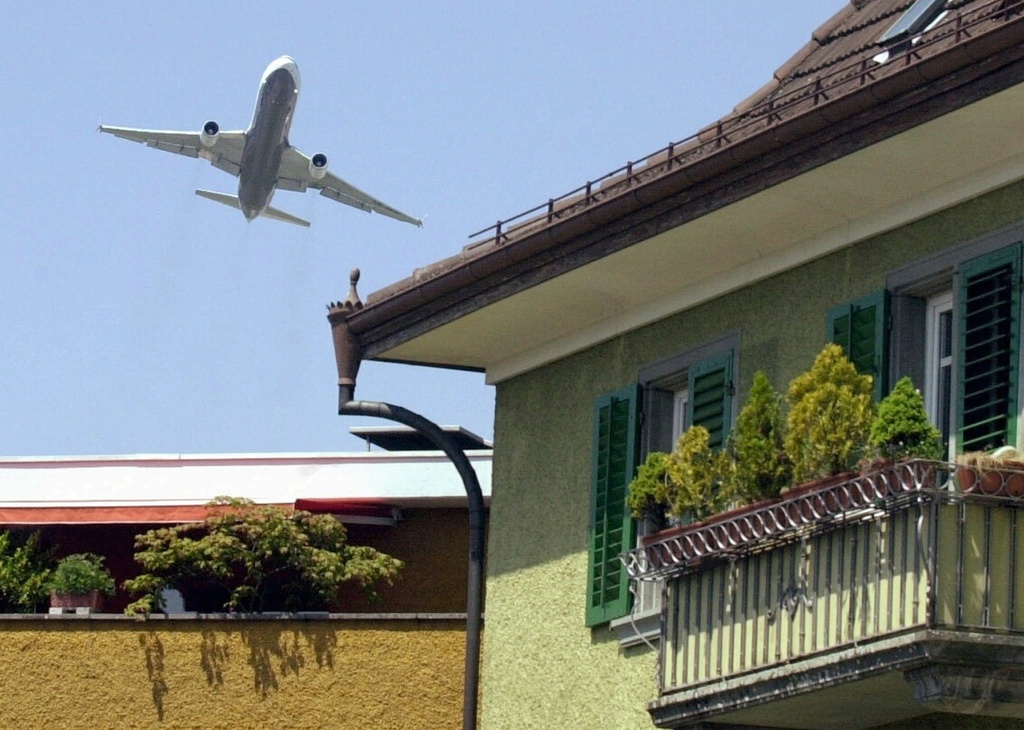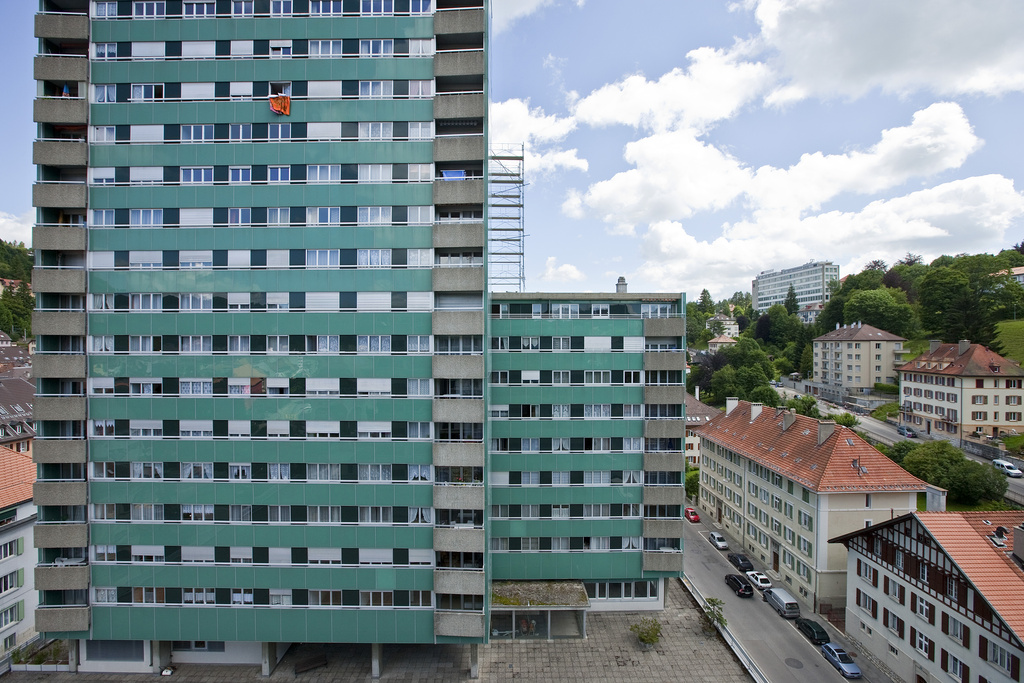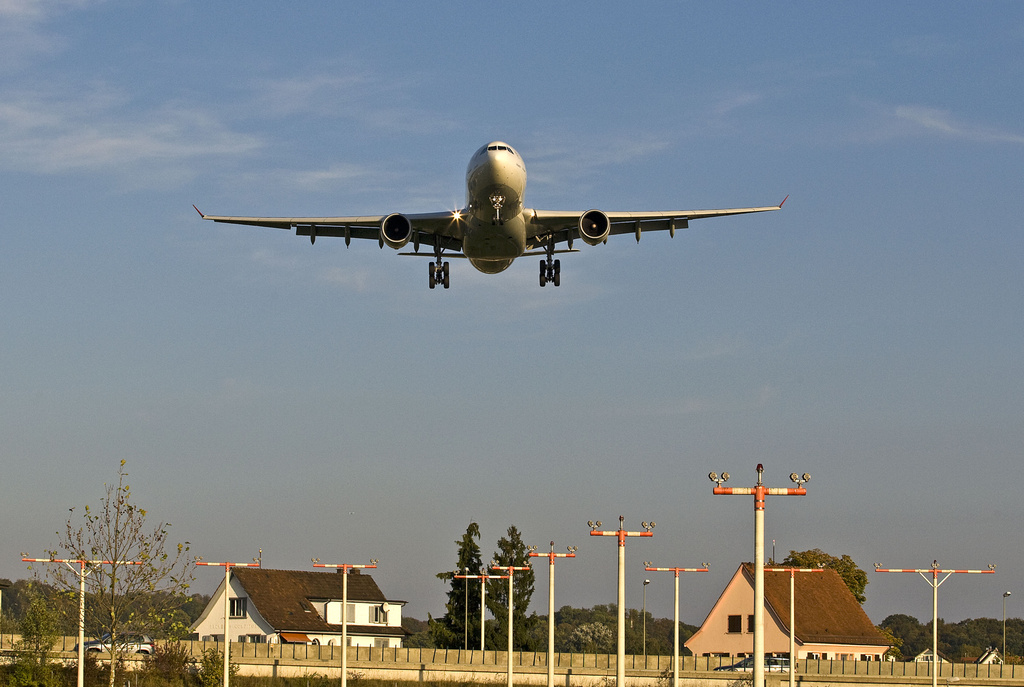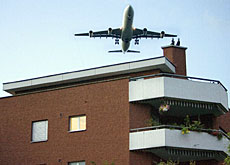Searching for a sound solution to aircraft noise

After losing the latest round in its long struggle with Germany over aircraft noise, Switzerland is pondering its next move.
On Thursday the General Court of the European Union in Luxembourg upheld a 2003 ruling of the European Commission that Germany was acting within its rights in imposing night time restrictions on low-altitude flights over its airspace.
The problem for Switzerland is that the flights affected are those using Zurich airport, the country’s biggest, which is located at Kloten, only about 20 kilometres from the German border.
The planes banned from German airspace are forced to fly instead over the densely populated areas south and east of Zurich.
In its ruling the court stated that the European Commission was correct in considering that the German measures did not amount to a ban, but simply modified the paths of the flights in question.
Nor did it violate the principle of equal treatment to the detriment of Swiss International Air Lines, it said.
Disappointment
“It’s difficult not to be disappointed,” Simon Hirsbrunner, a lawyer for the Swiss side, told swissinfo.ch just after the verdict.
“But it must also be said that it is very rare for the court to overturn a decision by the Commission.
“We shall have to analyse the details of its ruling, but what I find encouraging is that the court has treated Switzerland as if it were a member of the European Union, so it’s not making a difference between members and non-members.”
As the Swiss consider what to do next, both legal and political options are on the table.
Transport Minister Moritz Leuenberger said he was not surprised at the verdict, but that legal experts would now consider whether Switzerland should appeal further, to the European Court of Justice.
“The fact is that a lot of people are suffering from excessive noise on the Swiss side, whereas the limits are never exceeded on the German side,” he said.
An appeal would have to be lodged within two months of the ruling, and would have to be based on points of law.
At the same time, the government wants to continue talks to find an acceptable solution.
“The government is of the opinion that Switzerland and Germany must find a lasting solution, which will improve things for both sides. Switzerland is ready to continue working constructively for a treaty,” Leuenberger’s ministry said in a media statement.
Possible solutions
According to the Neue Zürcher Zeitung newspaper, talks which started in April between the civil aviation authorities of the two countries are thought to have included a Swiss proposal that the Germans should make concessions on the morning restrictions in exchange for noise-free windows during the day.
This would reduce the number of flights forced to use the southern approach – but would worsen the noise situation for people living to the east of Kloten.
The Bürgerprotest Fluglärm Ost association, whose members live in the eastern areas, issued a statement describing the legal route as an “expensive dead end”. But it said that future negotiations should not favour one region at the expense of another.
The Fluglärmforum Süd association, which represents the 32 Swiss communes south of the airport, is placing some of its hopes in talks scheduled to start in October, which will take as their starting point the analysis of the noise levels carried out by the two sides jointly.
The German-language Tages-Anzeiger newspaper says this analysis shows that the noise limits set by Germany are not being exceeded, and that the southern part of the Black Forest is barely affected by aircraft noise.
Battling on
But however desirable a political solution is seen to be, the legal option also finds favour.
Richard Hirt, president of the Fluglärmforum, said that “for psychological reasons Switzerland should not climb down”, while Michael Künzle, the president of Region Ost, an official organisation representing 84 communes to the east of the airport, said he would welcome an appeal.
“Switzerland has to send a signal,” said Thomas Koller, manager of the Komitee Weltoffenes Zurich, an organisation set up to promote Zurich airport.
On the German side there is little sympathy for the Swiss view. Tanja Gönner, transport and environment minister of Baden-Württemberg, just over the border, said the flight ban offered the “indispensable” minimum protection for the local population. She noted that the judgement recognised that the southern Black Forest, as a tourist area, was “particularly sensitive to noise”.
For his part, Tilman Bollacher, the district administrator of the border town of Waldshut wants to see the number of flights over southern Germany cut even further.
Koller pointed out that it is not the number that counts, but the noise pollution. “And now we have objective figures as a basis for negotiation.”
swissinfo.ch (with input from Alain Franco in Brussels)
Construction of the airport at Kloten started in 1946.
It opened for its first flights in 1948.
A total of 21.9 million passengers used the airport in 2009 – an average of just over 60,000 per day.
It had an average of 718 flight movements per day.
It served a total of 178 city destinations, of which 121 were within Europe.
The top scheduled destination was London.
Swiss International Air Lines carried 59 per cent of the passengers.
The airport is also a
major freight hub.
1984: Agreement between Switzerland and Germany on the use of German airspace for landings and take-offs at Kloten.
2000: Germany announces the abrogation of the agreement for May 2001.
Oct 2001: A new agreement signed.
Mar 2003: Swiss parliament refuses to ratify the agreement, whereupon Germany halts the ratification process.
2003: Germany issues unilateral decree about flights over southern Germany.
Jun 2003: Switzerland appeals to the EU Commission about the German decision.
Dec 2003: The Commission rejects the Swiss appeal.
Feb 2004: Switzerland appeals to the European Court of Justice against the Commission ruling.
May 2005: Court of Justice refers the appeal to the General Court – the lower appeals court.
Sep 2010: General Court rejects Swiss appeal.
(with input from Alain Franco, Brussels)

In compliance with the JTI standards
More: SWI swissinfo.ch certified by the Journalism Trust Initiative




You can find an overview of ongoing debates with our journalists here. Please join us!
If you want to start a conversation about a topic raised in this article or want to report factual errors, email us at english@swissinfo.ch.